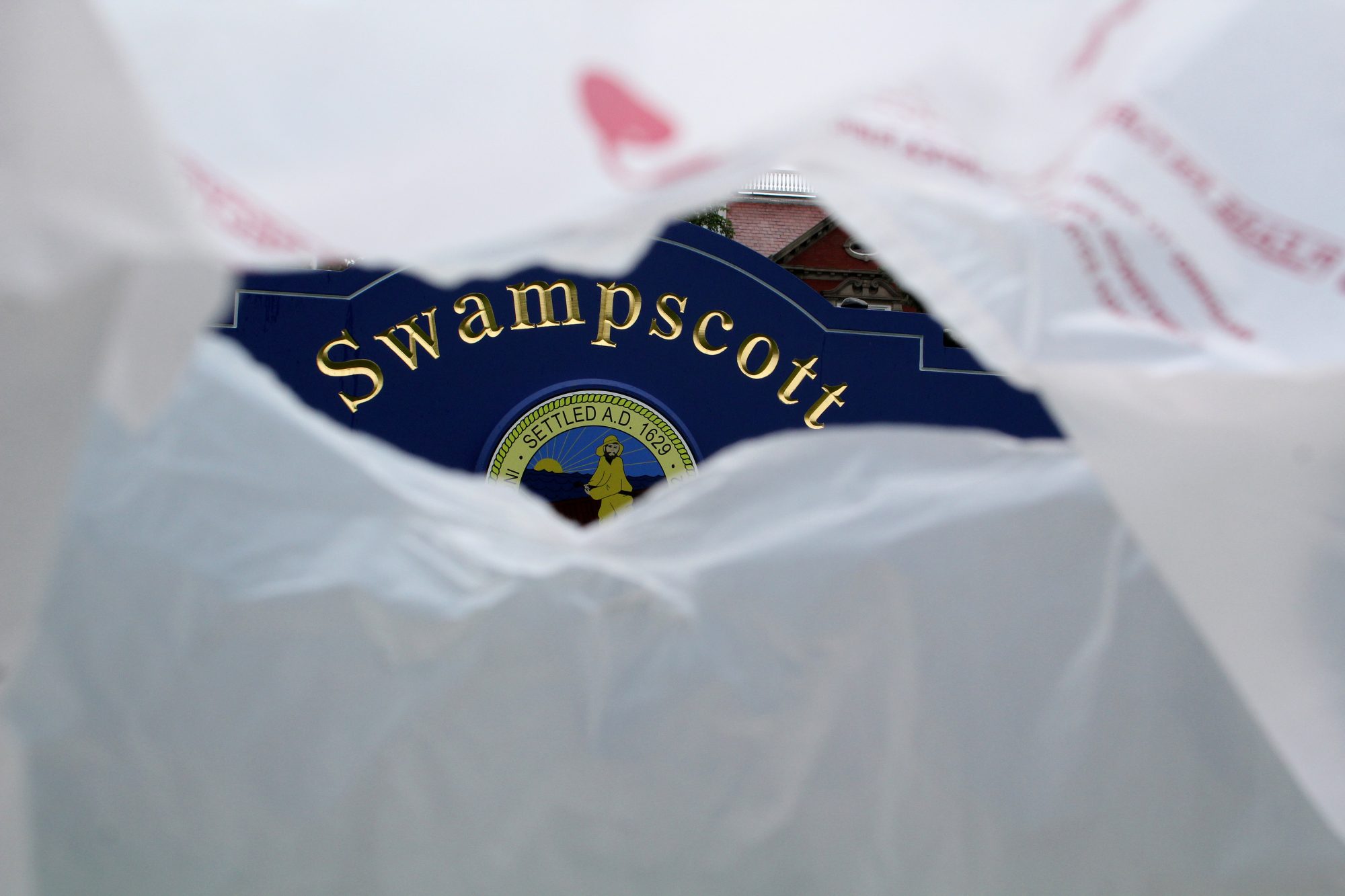SWAMPSCOTT — The Solid Waste Advisory Committee voted to create a working group that will examine ways to minimize plastic container waste in the town Thursday evening, after voting not to support Town Administrator Sean Fitzgerald’s proposed plastic container ban.
Fitzgerald sought the committee’s approval of a general bylaw amendment that would have banned single-use plastic containers, utensils, and straws for all businesses and food establishments in town. The proposed bylaw will go before Town Meeting on May 15.
Fitzgerald argued the proposed ban would reduce the environmental impacts of discarded single-use plastics that enter the sewer system and pollute the environment. He argued that while the ban’s effect on the environment might be miniscule on a regional or global scale, the bylaw could ripple locally if neighboring municipalities use Swampscott’s environmental policy as an exemplar.
“I think we’re behind the eight ball and I think we should act accordingly. I can hear the future yelling at us and asking us why we took so long to really understand how bad plastic is for the environment,” Fitzgerald said. “We’re just a small town, we’re not going to change the tide, but every little bit helps and you’d be surprised at what happens when smaller communities help lead larger communities.”
Solid Waste Advisory Committee Chair Wayne Spritz said he researched single-use plastic regulations in municipalities like Salem, Falmouth, Northampton, and Brookline. Spritz said that other cities and towns banned the use of specific plastics that are particularly harmful to water streams or contain PFAS — water-resistant and long-lasting chemicals found in common plastics that are known to negatively impact human health.
Although Spritz said the committee applauded the environmental aspirations with which the proposal was written, he did not believe a complete plastic ban would be the most effective way to reduce harmful water-stream pollution associated with containers and utensils.
Referencing the quantity of PFAS chemicals commonly found in water-resistant layers lining cardboard takeout containers, Spritz said that not all plastics are detrimental to the environment, while not all alternatives to plastic are benign.
“I want to make sure that us just banning plastics doesn’t mean that we’re adding other things to the waste stream,” Spritz said. “The goal is to get things out of the waste stream, and one of the ways to do that is by being able to take recyclable containers and messaging that they’re in fact recyclable, and putting them back to good use.”
Committee member Emily Westhoven suggested the town work to integrate policies encouraging reusable containers and mitigating waste, instead of banning all single-use plastics and potentially replacing them with more harmful materials. She suggested charging fees of less than a dollar for plastic bags at grocery stores to encourage customers to stop and think each time they go to the checkout, or regulating the amount of plastic utensils restaurants provide with takeout orders.
“A lot of the takeout in our community is done by households that are actually going home and eating at the table,” Westhoven said. “You wouldn’t know how many sets of plastic cutlery I have at home, and they throw it in the bag because it costs two cents and it doesn’t hurt them.”
Minutes before the vote, Fitzgerald continued to advocate for the bylaw proposal, urging the committee to approve it.
“Justice is an environmental responsibility that we have. Every argument you’re going to make, I’m going to push back,” Fitzgerald said. “The truth is, we’ve wasted too much time.”
Although the committee voted not to approve the proposed bylaw, Spritz said he agreed with “the heart” of the proposal. The committee instead voted to form a working group to write their own harmful plastic mitigation plan, which would be presented at the fall Town Meeting.

